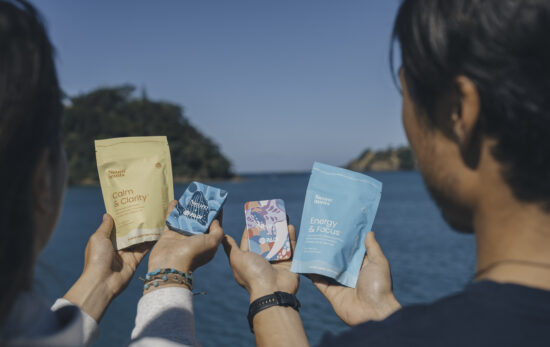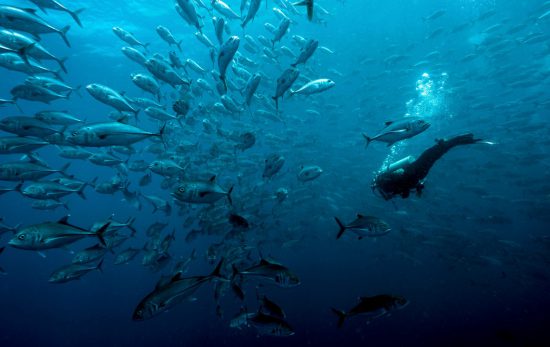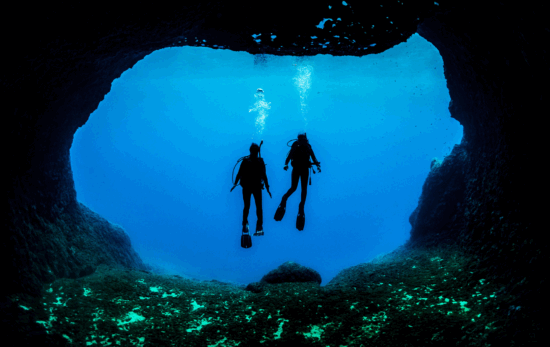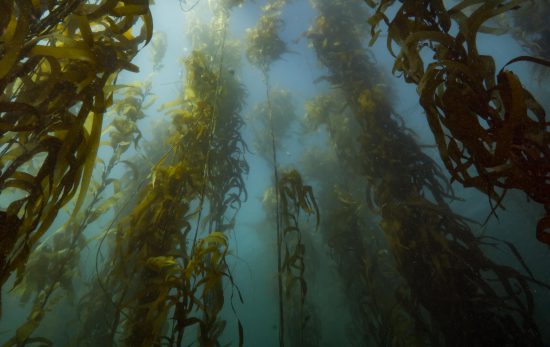We’ve begun the new year with optimism and hope for the future of our shared blue planet. With new credentials, courses and mindsets around scuba diving, the ocean has never been more accessible for people to explore and protect. Here are the top four trends in scuba diving that are empowering more people to become superheroes for the ocean in 2024.
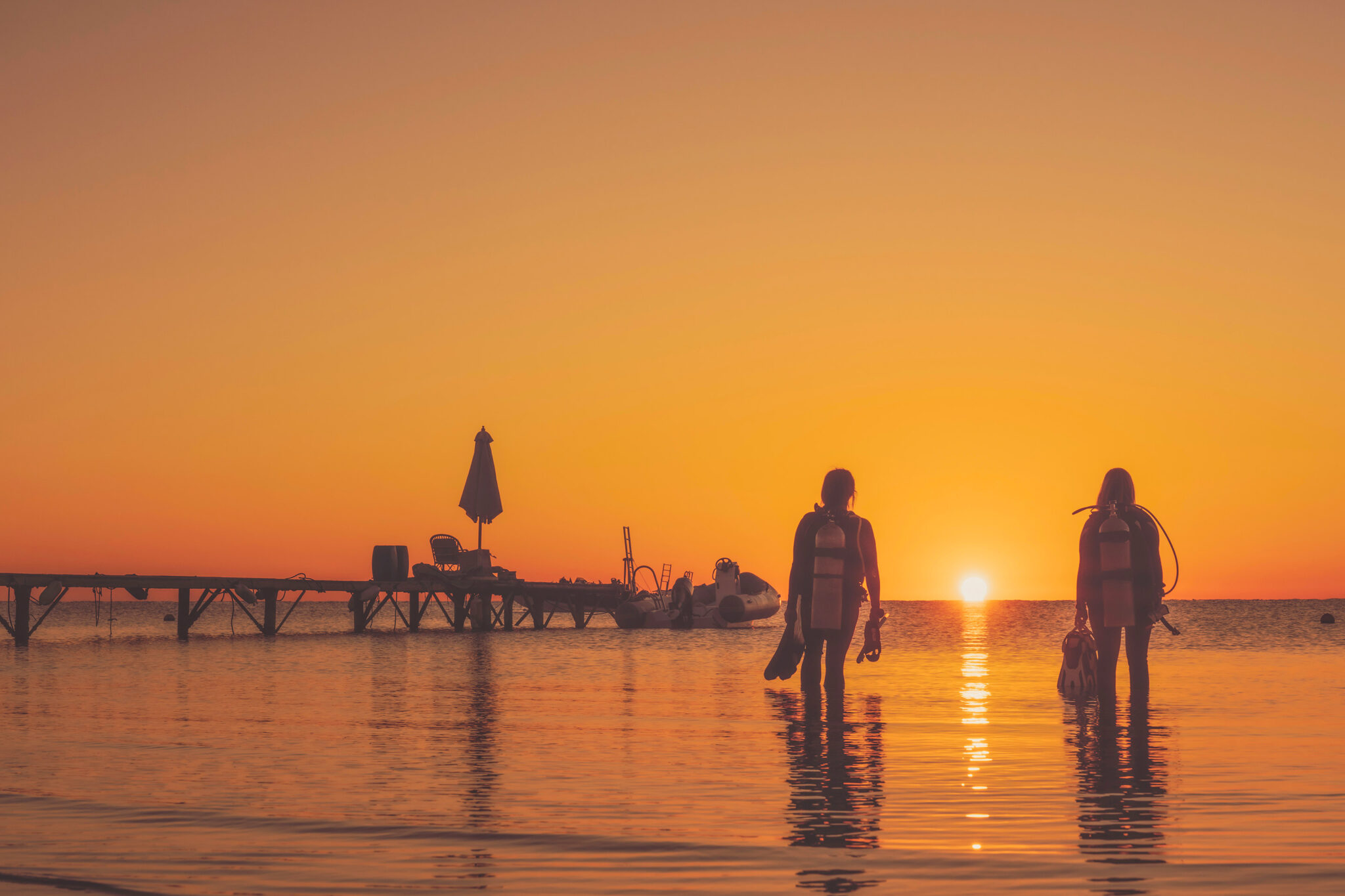
Trend 1: Eco Diving Is Accelerating
Conde Nast Traveler recently named eco-diving with PADI the second most popular travel trend for 2024.
As one of the 30 million+ PADI Divers, it’s likely that one of the most important things when diving is knowing you are making sustainable and responsible decisions. And, it’s statistically likely that you make choices based upon your commitment to our shared blue planet. In 2024, this will increasingly look like choosing to dive in marine protected areas (and in Adopt the Blue sites), participating in citizen science initiatives, including education and volunteering on your dive trips, and ensuring your dive trips give back by booking with PADI Eco Centers.
On Earth Day 2023, PADI launched an all-new accreditation known as PADI Eco Centers to further recognize and elevate our planet’s most environmentally committed dive operators. This accreditation uses the United Nations Environment Program and the Reef-World Foundation’s Green Fins program, making PADI Eco Centers the premier choice for all divers, adventurers and travel experts seeking ocean-first, marine-conscious dive experiences that place sustainability at the forefront.
Fast Facts about PADI Eco Centers:
- 100 accredited PADI Eco Centers in 32 countries to date
- 300+ additional PADI Dive Centers in 64 countries are actively working towards their PADI Eco Center accreditation
- International travel chains are committing to becoming PADI Eco Centers, including:
- First international resort chain: Sandals and Beaches Resorts
- First international liveaboard fleet: Explore Ventures
- First national dive center chain: Dive Friends Bonaire
- Collectively, PADI Eco Centers have helped:
- Remove 2.3 million pieces of plastic from the ocean with PADI’s Dive Against Debris program
- Detangled 34,773 marine animals
- Adopted 5,800 dive sites to monitor and support the formation of Marine Protected Areas
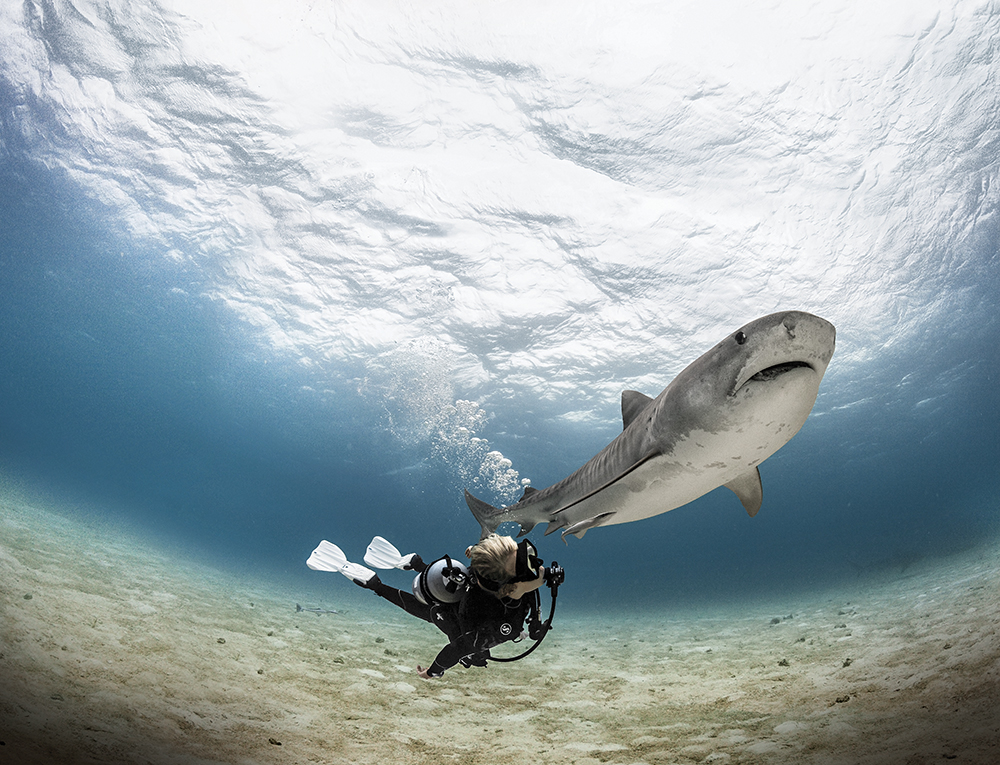
Trend 2: Sharks Are Friends and Scuba Divers Are Saving Them
For the last two years, PADI scuba divers have helped secure protection for vulnerable shark and ray species. In 2021, they helped secure protection for Mako Sharks at the International Commission for the Conservation of Atlantic Tuna (ICCAT). In 2022, they helped secure protection for requiem sharks (54 species of sharks and rays) at CITES.
Now, in 2024, the PADI AWARE Foundation will continue to prep for the launch of the new Global Shark + Ray Census and Shark and Ray Specialty Course in early 2025. The census will be the largest of its kind that also includes several megafauna, and it will be critical to garnering governmental protection of species. Furthermore, the new course will teach scuba divers how to identify, monitor and log shark and ray activity so that the data can be used to influence governmental policies to give these vulnerable species the essential protection they need.
To further empower the 6,600+ PADI Dive Centers and Resorts in 183 countries, we have created a responsible shark and ray tourism guide to ensure best practices are followed by operators and that scuba divers can positively contribute to the shark tourism economy.
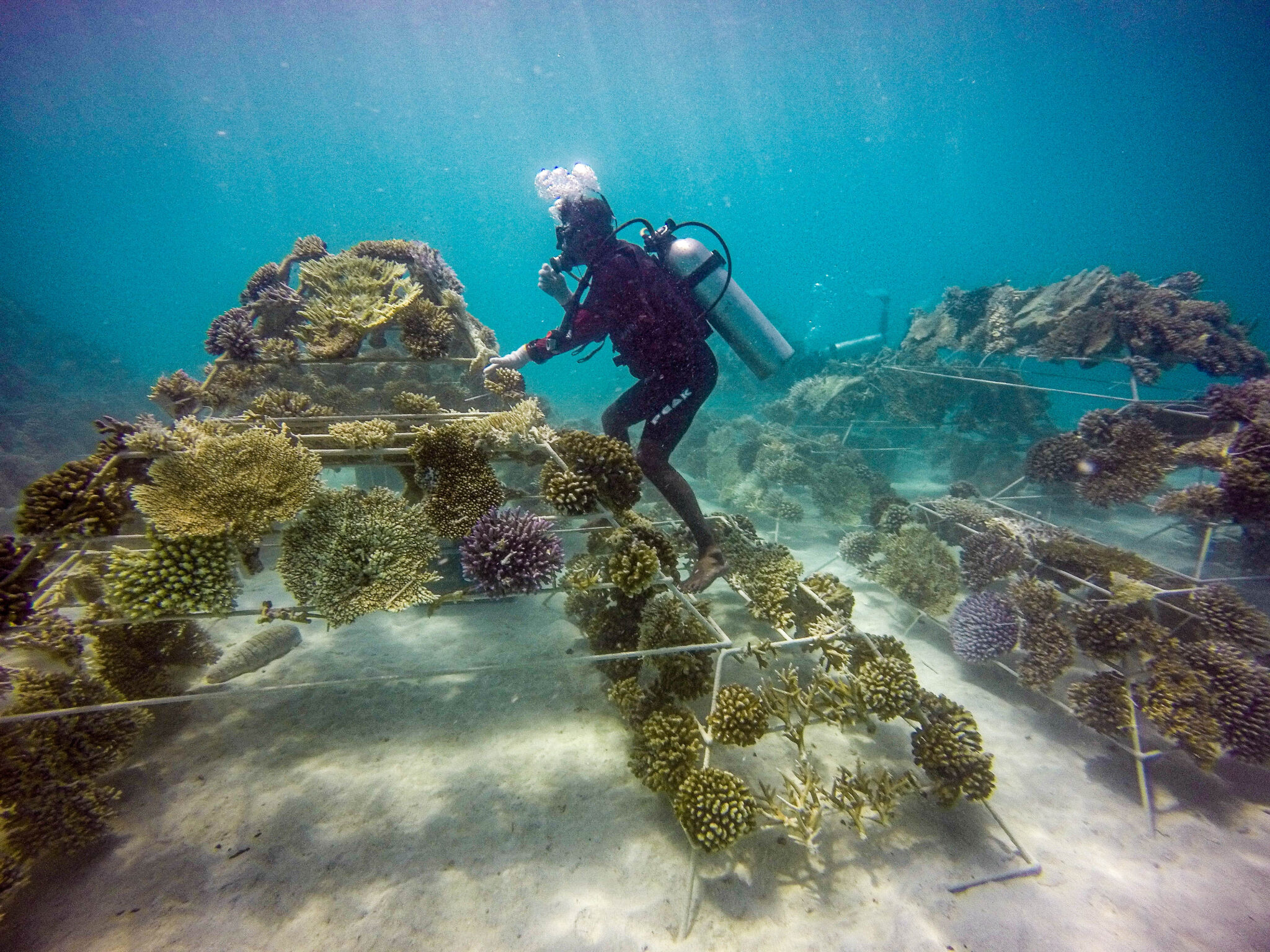
Trend 3: Scuba Divers Are Becoming Volunteer Coral Gardeners
There has been an increase in both recreational and professional PADI Divers planting coral around the world. To further support this, we plan to relaunch the Coral Restoration Specialty Course to enable more scuba divers to participate in the re-establishment of one of our planet’s most critical ecosystems. Top coral success stories from PADI scuba divers and members include:
- In Florida, USA, Coral Restoration Foundation is the largest coral reef restoration organization in the world. Since 2012, they have outplanted more than 74,000 corals on the Florida Reef Tract. Volunteer divers can help with a myriad of tasks all year round, and the organization hosts their annual Coralpalooza event on World Oceans Day (June 8th).
- In Florida, USA, Diver’s Paradise in Key Biscayne is studying the microbiomes of coral and how different environments help them thrive. They’ve found that coral within the Miami yachting harbors has not been impacted by coral bleaching and are working on launching a framework that allows dive centers and divers around the world to take part in regenerating reefs in their own local coastlines.
- In the Caribbean, Reef Renewal Foundation Bonaire invites volunteer scuba divers to help restore Bonaire’s coral reefs – including during their annual ReeFiesta event on World Reef Day (June 1st).
- In Australia, Reef Restoration Foundation is the Great Barrier Reef’s first coral restoration initiative – seeking volunteer divers to help reach their goal of planting 25,000 new corals on the reef.
- In French Polynesia and Fiji, Coral Gardeners invite interested divers to be directly involved in their efforts to plant healthy corals on the reefs of Moorea and the Mamanuca Islands.
- In Kenya, REEFolution seeks hearty volunteers to help collect healthy corals, place them in nurseries, and outplant them on their local Indian Ocean reefs.
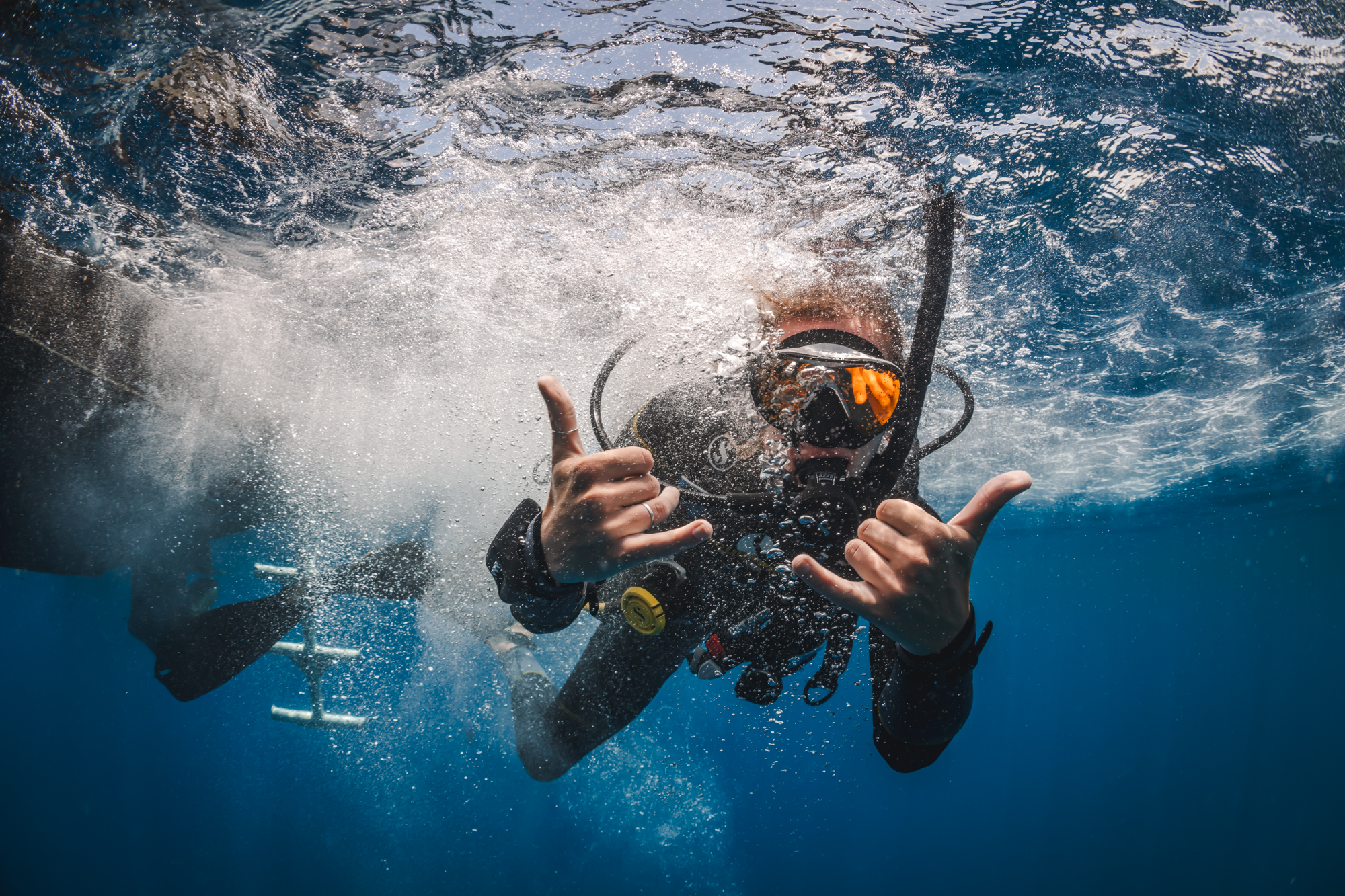
Trend 4: The Ocean is Healing Scuba Divers
One of the biggest wellness trends is scuba diving, with the range of mental and physical benefits provided by the sport having been recently recognized by several studies.
In general, scuba divers benefit from a boost of vitamin D, become more conscious of their breath, enhance their fitness levels, improve their quality of sleep, and become connected with a like-minded community. As a PADI Diver, you not only have a passport to the last frontier, but you equally will have the skills to create real ocean change and make a difference for our blue planet – an enormous mental health benefit that solidifies a deep feeling of purpose.
That is also why we are committed to making the underwater world accessible to all through adaptive diving programs. In 2018, PADI launched an Adaptive Techniques course that teaches divers how to modify equipment configurations and develop a diver’s skills based on their needs – ensuring that regardless of physical or mental disability, everyone can find healing in the water. There are also PADI Adaptive Diving Facilities all over the world, which boast staff trained in adaptive diving techniques along with accessible classrooms, pools and boat decks.
The ocean is helping scuba divers with:
- Blindness – In October 2023, we teamed up with Reef Divers in Mozambique to certify Jessica Pita, who has been blind since the age of 11. Hearing the crackling of coral instilled a sense of confidence in her that has made her believe more in herself and brought her a new sense of wanderlust for underwater exploration.
- Trauma – Triple amputee US Military veteran Bryan Anderson and his commander Robert Currer found mental healing from the Iraq war underwater. The two reunited when Currer certified Anderson as a PADI Open Water Diver in Catalina Island.
- Injury – Ryan Chen was in a tragic accident as a teenager that left him paralyzed. He found healing and clarity through becoming a PADI Open Water Diver with his dive buddy Kent Yoshimura. During one scuba diving trip, he and Kent ended up creating their current company Neuro Gum – a collection of functional gum and mints that help you get energized, calm or focused. This led Chen to being named to Forbes 30 under 30 and teaming up with PADI to donate USD $100K to PADI’s global non-profit, PADI AWARE Foundation, to support creating positive ocean change.
With each of these four trends, scuba divers, whether they are beginners, advanced or professional, can help make the world and the ocean a better place. Join us as we continue to seek adventure and save the ocean.

